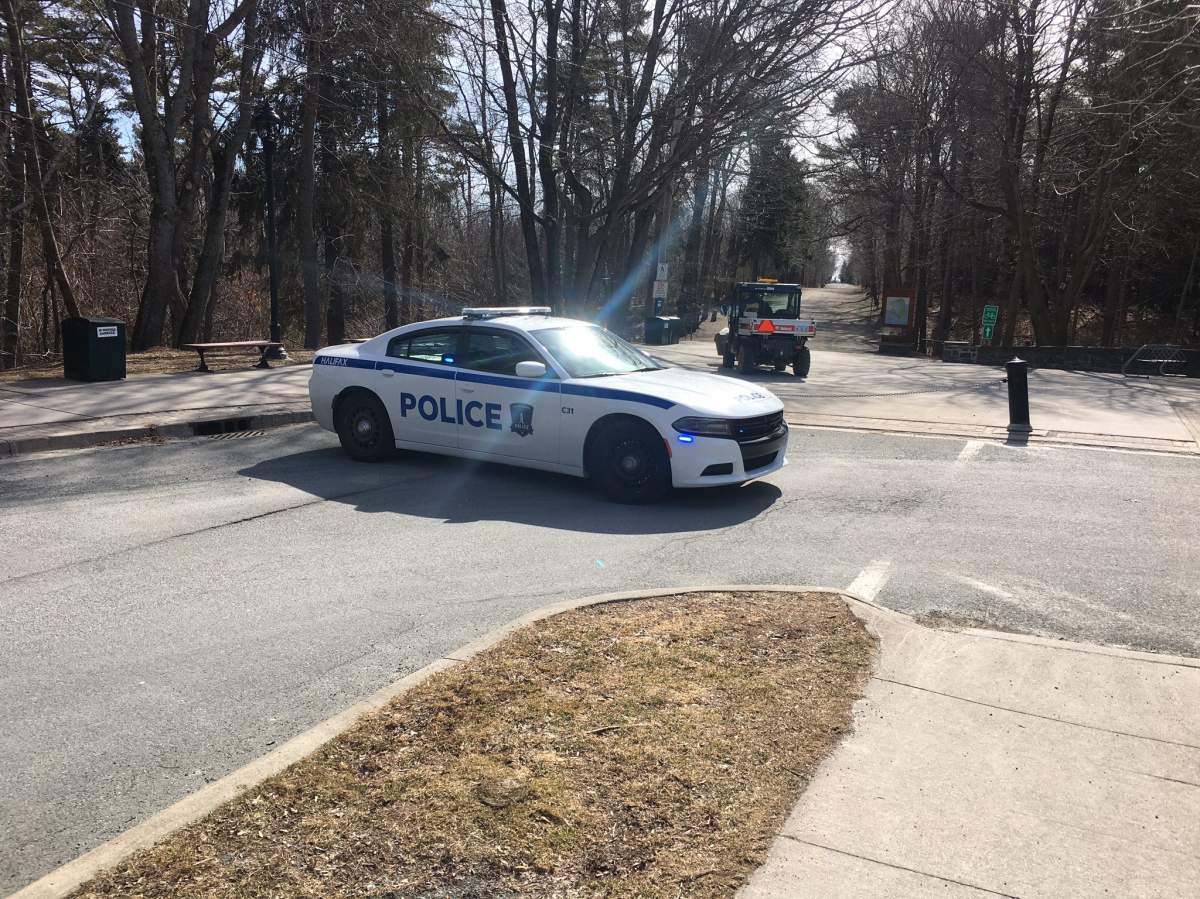Halifax Regional Police have seized a vehicle and issued a ticket after finding a person violating the province’s emergency measures act in Point Pleasant Park on Sunday.

Nova Scotia’s parks and beaches are closed to the public under the province’s emergency measures act in order to slow the spread of COVID-19.
READ MORE: Halifax police issue warning on lying about COVID-19
Halifax Regional Police (HRP) say at 1:12 p.m., officers were patrolling Point Pleasant Park when they located an unoccupied Toyota Yaris the park.
At approximately 1:53 p.m., a police service dog and handler located a 44-year-old woman on the shoreline of the park.
The woman, who is the owner of the vehicle, was determined to be violating the emergency measures act.

Get weekly health news
As a result, officers seized the vehicle and the woman was issued a summary ticket for failing to comply with the act.

The fine associated with the ticket is $697.50.
HRP are reminding residents to educate themselves on the restrictions under the act and to be mindful of the “unprecedented COVID-19 crisis we are facing as a community.”
They say they thank the “vast majority” of citizens who are complying with the rules.
Questions about COVID-19? Here are some things you need to know:
Health officials caution against all international travel. Returning travellers are legally obligated to self-isolate for 14 days, beginning March 26, in case they develop symptoms and to prevent spreading the virus to others. Some provinces and territories have also implemented additional recommendations or enforcement measures to ensure those returning to the area self-isolate.
Symptoms can include fever, cough and difficulty breathing — very similar to a cold or flu. Some people can develop a more severe illness. People most at risk of this include older adults and people with severe chronic medical conditions like heart, lung or kidney disease. If you develop symptoms, contact public health authorities.
To prevent the virus from spreading, experts recommend frequent handwashing and coughing into your sleeve. They also recommend minimizing contact with others, staying home as much as possible and maintaining a distance of two metres from other people if you go out.
For full COVID-19 coverage from Global News, click here.









Comments
Comments closed.
Due to the sensitive and/or legal subject matter of some of the content on globalnews.ca, we reserve the ability to disable comments from time to time.
Please see our Commenting Policy for more.